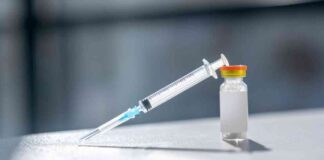Amidst the bustling streets of Massachusetts, a looming shadow of uncertainty falls upon the biomedical research community. Elected leaders, including Senator Ed Markey, have sounded the alarm on the imminent impact of the Trump administration’s health research cuts. This policy change, set to take effect on Monday, is poised to disrupt the very foundation of scientific endeavors at prestigious universities and medical centers in the state.
The heart of the matter lies in the newly announced cap on reimbursement rates from the National Institutes of Health (NIH) for indirect costs associated with research operations. These costs, crucial for the smooth functioning of laboratories and facilities, cover a wide spectrum of services and resources, from personnel to utilities and maintenance. However, under the new policy, these expenses will be limited to 15 percent, a move that is expected to send shockwaves through the scientific community in Massachusetts.
Challenges Faced by Biomedical Researchers
For researchers on the front lines of innovation, the sudden reduction in funding poses a significant challenge. The ripple effects of this decision are far-reaching, potentially leading to layoffs and disruptions in critical research projects. With limited resources to support the infrastructure necessary for cutting-edge scientific exploration, the very essence of discovery is at stake.
In the midst of uncertainty, voices of concern are growing louder among those who dedicate their lives to advancing medical knowledge. The impact of these cuts goes beyond financial constraints; it strikes at the core of scientific progress and the future of healthcare. As laboratories face the prospect of downsizing and essential services are scaled back, the intricate web of connections that drives innovation is at risk of unraveling.
Implications for Massachusetts Economy and Reputation
Beyond the walls of research institutions, the repercussions of the NIH policy change extend to the broader Massachusetts economy and reputation. Known for its thriving scientific community and groundbreaking discoveries, the state stands to lose not only skilled professionals but also its standing as a hub for biomedical research. The symbiotic relationship between academic institutions, medical centers, and the local economy hangs in the balance, as the looming funding cuts threaten to disrupt this delicate ecosystem.
In the face of adversity, the resilience of the scientific community in Massachusetts shines through. Researchers, policymakers, and advocates are mobilizing to address the challenges posed by the impending cuts, rallying together to find innovative solutions and safeguard the future of biomedical research. As the clock ticks down to the implementation of the new policy, the spirit of collaboration and determination burns brightly, illuminating a path forward in the midst of uncertainty.
As the sun sets on the eve of change, the fate of biomedical research in Massachusetts hangs in the balance. The decisions made in the coming days will shape the landscape of innovation and discovery for years to come, leaving an indelible mark on the scientific community and the state as a whole. In the face of adversity, the true test of resilience lies not in avoiding challenges, but in confronting them head-on with courage, creativity, and unwavering determination. And so, the journey of discovery continues, guided by the unwavering spirit of those who dare to dream and strive for a better tomorrow.


















